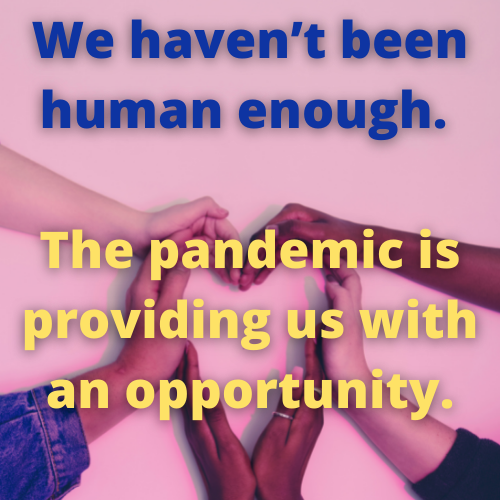
The Future of Leadership and Coaching
The following is an excerpt of the findings from a study that the Harvard Institute of Coaching conducted, with a series of executives, on the future of Leadership and Coaching.
- Organizations meet human needs
- social connection, belonging
- engagement
- autonomy
- well-being
- human-centeredskills
- workplacedesign
- Leaders change their ways
- values shift toward benevolence and openness to change
- ways change toward connection, listening, authenticity
- strategy becomes iterative, responsive, collaborative
- priorities become relationships, self-care
- Human-centered leadership emerges
- expand consciousness
- cultivate relationships
- support well-being
- integrate diversity
- develop agile cultures
- Coaches help leaders change
- safe space to ground and reflect
- navigate challenges and crises
- expand consciousness
- see and navigate blind spots and biases
- expand capacity
- enable change of thinking and behavior
The changes are for us very obvious.
We needed to support employee health and well- being to gain their trust and help them be less resistant to large corporate changes needed in something like COVID-19.
The real secret to leadership goes back to showing empathy, building safety, building teamwork, where people can show up and be vulnerable.
The pandemic really exposed leaders who are uncomfortable doing that because if you hide behind numbers, if you hide behind management, if you are uncomfortable creating safe spaces for people to truly open up, there’s no way there’s any chance against COVID-19 – it exposes cultures that are based on fear.
There is no map, no protocol, no process for COVID-19. We actually have to trust each other.
We first struggle with ‘how do we better execute’ when the real question is, ‘how do we need to change?’
We know change is hard. Change is not what the leadership wants to do. Our inclination is to pedal faster.
The role of an executive coach is to help folks get out of the box that they’re in and contemplate the bigger questions about the change.
The ability to simplify in the middle of complexity, inspire when there’s no hope, build relationships when there is distrust, build bridges when things have fragmented, change people when people don’t want to change.
All those skills are not in the technical manual.
And all those skills start with self-awareness and having very open conversations about our own derailers, our own strengths,
our own opportunities.
That’s where I think a formal coach on a consistent basis makes a transformational difference.